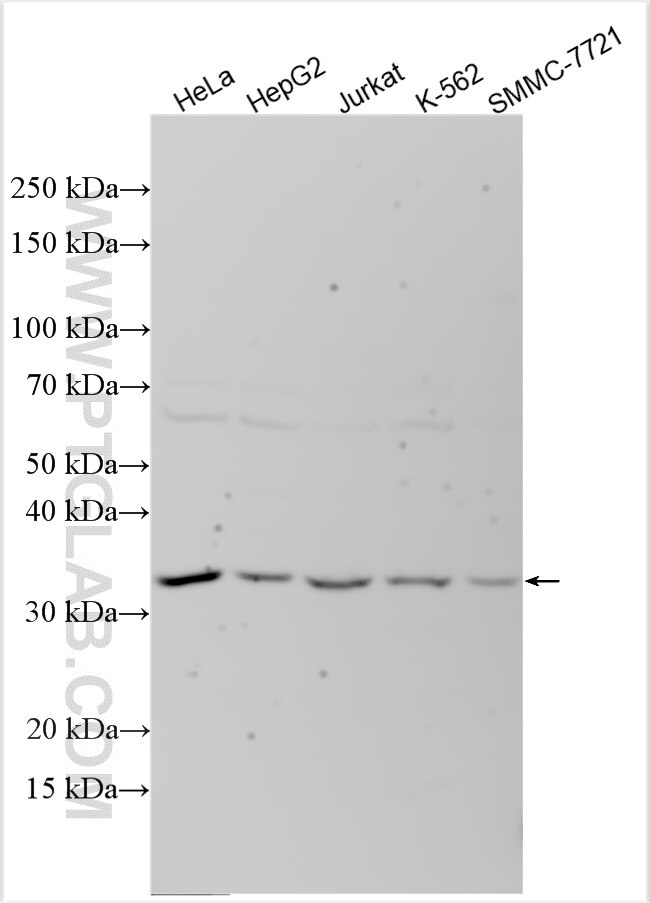Tested Applications
| Positive WB detected in | HeLa cells, HepG2 cells, Jurkat cells, K-562 cells, SMMC-7721 |
Recommended dilution
| Application | Dilution |
|---|---|
| Western Blot (WB) | WB : 1:1000-1:8000 |
| It is recommended that this reagent should be titrated in each testing system to obtain optimal results. | |
| Sample-dependent, Check data in validation data gallery. | |
Product Information
21182-1-AP targets ARHGEF39 in WB, ELISA applications and shows reactivity with human samples.
| Tested Reactivity | human |
| Host / Isotype | Rabbit / IgG |
| Class | Polyclonal |
| Type | Antibody |
| Immunogen | ARHGEF39 fusion protein Ag15473 Predict reactive species |
| Full Name | chromosome 9 open reading frame 100 |
| Calculated Molecular Weight | 335 aa, 38 kDa |
| Observed Molecular Weight | 34 kDa |
| GenBank Accession Number | BC033666 |
| Gene Symbol | C9orf100 |
| Gene ID (NCBI) | 84904 |
| RRID | AB_3669361 |
| Conjugate | Unconjugated |
| Form | Liquid |
| Purification Method | Antigen affinity purification |
| UNIPROT ID | Q8N4T4 |
| Storage Buffer | PBS with 0.02% sodium azide and 50% glycerol, pH 7.3. |
| Storage Conditions | Store at -20°C. Stable for one year after shipment. Aliquoting is unnecessary for -20oC storage. 20ul sizes contain 0.1% BSA. |
Background Information
Rho guanine nucleotide exchange factor 39 (ARHGEF39), also called C9orf100, is part of the family of Rho guanine nucleotide exchange factors (RhoGEFs) that activate small Rho GTPases to regulate a wide variety of cellular processes. ARHGEF39 was previously implicated in developmental language disorder (DLD) via a functional polymorphism that can disrupt post-transcriptional regulation by microRNAs.
Protocols
| Product Specific Protocols | |
|---|---|
| WB protocol for ARHGEF39 antibody 21182-1-AP | Download protocol |
| Standard Protocols | |
|---|---|
| Click here to view our Standard Protocols |



